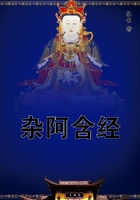Chief Justice Waite I also found a very substantial interesting man; but especially fascinating was General Sheridan, who, at a dinner given by my Berlin predecessor, Mr. Bancroft Davis, described the scene at the battle of Gravelotte when, owing to a rush by the French, the Emperor of Germany was for a time in real danger and was reluctantly obliged to fall back. He said that during the panic and retreat toward Thionville he saw the Emperor halt from time to time to scold soldiers who threw away their muskets; that very many German soldiers, during this panic, cast aside everything except the clothes they wore--not only their guns, but their helmets; that afterward the highways and fields were strewn thickly with these, and that wagons were sent out to collect them.
He also said that Bismarck spoke highly to him regarding the martial and civil qualities of the crown prince, afterward the Emperor Frederick, but that regarding the Red Prince, Frederick Charles, he expressed a very different opinion.
Speaking of a statement that some one had invented armor which would ward off a rifle-ball, Sheridan said that during the Civil War an officer who wore a steel vest beneath his coat was driven out of decent society by general contempt; and at this Goldwin Smith told a story of the Duke of Wellington, who, when troubled by an inventor of armor, nearly scared him to death by ordering him to wear his own armor and allow a platoon of soldiers to fire at him.
During the course of the conversation Sheridan said that soldiers were braver now than ever before--braver, indeed, than the crusaders, as was proved by the fact that in these days they wear no armor. To this Goldwin Smith answered that he thought war in the middle ages was more destructive than even in our time. Sheridan said that breech-loading rifles kill more than all the cannon.
At a breakfast given by Goldwin Smith at Wormley's, Bancroft, speaking of Berlin matters, said that the Emperor William did not know that Germany was the second power in the world so far as a mercantile navy was concerned until he himself told him; and on the ignorance of monarchs regarding their own domains, Goldwin Smith said that Lord Malmesbury, when assured by Napoleon III that in the plebiscite he would have the vote of the army, which was five hundred thousand, answered, ``But, your majesty, your army numbers seven hundred thousand,'' whereupon the Emperor was silent. The in-ference was that his majesty knew a large part of his army to be merely on paper.
At this Mr. John Field, of Philadelphia, said that on the breaking out of the Franco-Prussian War he went to General Grant at Long Branch, and asked him how the war was likely to turn out, to which the general answered, ``As I am President of the United States, I am unable to answer.'' ``But,'' said Field, ``I am a citizen sovereign and ask an opinion.'' ``Well,'' said General Grant, ``confidentially, the Germans will beat the French thoroughly and march on Paris. The French army is a mere shell.''
This reminded me that General Grant, on my own visit to him some weeks before, had foretold to me sundry difficulties of Lord Wolseley in Egypt just as they afterward occurred.
At a dinner with Senator Morrill of Vermont I met General Schenck, formerly a leading member of Congress and minister to Brazil and to England. He was very interesting in his sketches of English orators; thought Bright the best, Gladstone admirable, and Sir Stafford Northcote, with his everlasting hawing and humming, intolerable. He gave interesting reminiscences of Tom Corwin, his old preceptor, and said that Corwin's power over an audience was magical. He added that he once attended a public dinner in Boston, and, sitting near Everett, who was the chief speaker, noticed that when the waiters sought to clear the table and were about to remove a bouquet containing two small flags, Everett would not allow them to do it, and that later in the evening, during his speech, just at the proper point, he caught up these flags, as if accidentally, and waved them. He said that everything with Everett and Choate seemed to be cut and dried; that even the interruptions seemed prepared beforehand.
Senator Morrill then told a story regarding Everett's great speech at the opening of the Dudley Observatory at Albany, which I had heard at the time of its delivery.
In this speech Everett said: ``Last night, crossing the Connecticut River, I saw mirrored in its waters Arcturus, then fully at the zenith, and I thought,'' etc., etc.; ``but,''
said Morrill, ``some one looked into the matter and found that Everett, before leaving home, had evidently turned the globe in his study wrong side up, for at that time Arcturus was not at the zenith, but at the nadir.''
At the Cornell commencement of this year (1885) Iresigned my presidency of the university. It had nominally lasted eighteen years, but really more than twenty, since I had taken the lead in the work of the university even before its charter was granted, twenty years previously, and from that day the main charge of its organization and of everything except providing funds had been intrusted to me. Regarding this part of my life I shall speak more fully in another chapter.
Shortly after this resignation two opportunities were offered me which caused me considerable thought.
As to the first, President Cleveland was kind enough to write me an autograph letter asking whether I would accept one of the positions on the new Interstate Railway Commission. I felt it a great honor to be asked to act as colleague with such men as Chief Justice Cooley, Mr.
Morrison, and others already upon that board, but Irecognized my own incompetence to discharge the duties of such a position properly. Though I had been, some years before, a director in two of the largest railway corporations in the United States, my heart was never in that duty, and I never prepared myself to discharge it.















